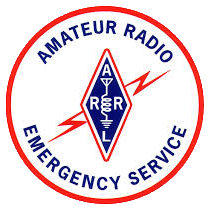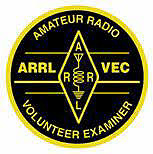In previous ARES presentations I have made reference to other entities that either provide Emergency Communications services, or need the ability to utilize them during an emergency.
 While we focus on the Amateur Radio Emergency Service (ARES), sponsored by the ARRL, for providing emergency communications, the only entity recognized formally in FCC regulations is the Radio Amateur Civil Emergency Service (RACES). So what is RACES, and why do we hear so little about it?
While we focus on the Amateur Radio Emergency Service (ARES), sponsored by the ARRL, for providing emergency communications, the only entity recognized formally in FCC regulations is the Radio Amateur Civil Emergency Service (RACES). So what is RACES, and why do we hear so little about it?
RACES is recognized in FCC regulations Part 97, Section 407. RACES is a service comprised of Amateur Radio operators who report directly to a Civil Defense Agency like FEMA, GEMA, and local Emergency Management Agencies (EMA). The agency will create their own organization and sign-up radio operators who, when called up, operate under the jurisdiction of the agency they serve. Any of the entities may activate their RACES organization at their discretion.
While operating as a RACES station the operator is not to communicate with non-RACES authorized stations unless specifically instructed to do so by their served Civil Defense Agency. Under the Presidential War Powers Act normal Amateur Radio activity can be suspended, leaving the Amateur bands open for RACES operations exclusively during an emergency.
So, at this point you might ask why does ARES exist? Well, RACES only services Civil Defense entities, but there are other entities that may need Amateur Radio support. For instance, the Salvation Army and Red Cross may need Amateur Radio support specifically for their operations. Hospitals, such as Tanner Medical Centers, have unique needs. None of these entities are directly covered under the RACES program. It is theoretically possible for a County EMA director to deploy RACES operators to a hospital or other location to support other entities during an emergency, but those entities will be competing directly with the EMA director's own needs. ARES fills the gap, offering services to a variety of entities that may need operators focused on their needs, not merely part of a pool of operators shared by a Civil Defense agency.
As time has passed and ARES has grown, the way Civil Defense agencies handle securing Amateur Radio resources changed; recognizing the fact the probability of needing Amateur Radio at any given time is low, but management needs remain, many of these Civil Defense entities enter into agreements with ARES to provide operators who are dual registered as ARES and RACES operators. The served entity then has the freedom to activate RACES and the previously deployed ARES operators suddenly become RACES operators!
One benefit of RACES is that the served entity may be able to extend liability, medical, and workman's compensation insurance to the activated Amateur Radio operators, who qualify as employees, even if unpaid. Seldom is this done, but when it is, it is not so much compensation as an umbrella of protection for operators who may be placed in a situation where there is risk of injury or the need for liability protection. ARES, being essentially a contractor, would not be able to have such benefits extended to them.


